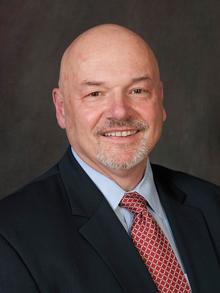As part of our blog series, The Empowered PCP, agilon health is sitting down with powerful voices in the primary care physician (PCP) community to learn how they’re creating healthier communities through value-based care and to hear their perspectives on empowering other PCPs.
Dr. Jay Zdunek has been a primary care physician for 36 years and was previously Chief Medical Officer at the Austin Regional Clinic (ARC), an agilon health partner. Recently, we sat down with Dr. Zdunek to discuss how environmental factors along with patient behaviors can have a big impact on chronic conditions in senior patients – both positive and negative.
According to the CDC, six in ten adults in the U.S. have a chronic disease, and four in ten have two or more. Chronic diseases such as heart disease, cancer, and diabetes are the leading causes of death and disability in the United States.
“I’ve seen firsthand how stress, improper diet, and lack of adequate sleep and exercise can worsen a patient’s health,” Dr. Zdunek says. “And how changing behaviors and addressing environmental challenges can improve it.”
The Importance of Light
“Daylight is important because it affects our moods on a daily basis,” Dr. Zdunek explains. “In the northern hemisphere and places that have colder winters, the lack of daylight can lead to seasonal affective disorder, which can significantly impact the health of patients.” Senior patients may be more likely to suffer from seasonal depression if their time spent outdoors is limited by severe weather, reduced mobility, or illness.
Sleep – and the Lack of It
The CDC has found that insufficient sleep has been linked to the development and management of a number of chronic diseases and conditions, including type 2 diabetes, cardiovascular disease, obesity, and depression.
“Sleep is our restorative process and helps our bodies heal,” Dr. Zdunek says. “When we don’t sleep well or have a lack of sleep, it increases stress within our bodies. Stress raises hormones—specifically cortisol—our fight-or-flight hormone, which makes us tenser and more anxious. It also raises insulin levels, and we often see people with sleep disorders suffer from weight gain, mental cloudiness, and changes in blood pressure. Their reparative functions become impaired as a result of this lack of sleep.”
“Sleep is probably one of the most misunderstood—but also one of the most common—problems primary care physicians deal with.” Unfortunately, PCPs don’t always pay attention to how sleep issues can affect older patients.
“People need to get adequate rest, but most people function on much less sleep than is considered appropriate,” Dr. Zdunek says. “I would say that 90% of people get less than the recommended 9-10 hours of sleep per night.”
“Today’s life is too busy, too stressful,” he continues. “We’ve got far too many stimuli that interfere with our ability to get that proper rest.”
Eating Well for Wellness
Maintaining a proper diet can also be challenging for many people, especially senior patients. As Dr. Zdunek says, “Because of the fast-paced lifestyle that we have, we often don’t take the time to prepare meals that can provide our bodies with good calories and proper nutrients. We often grab fast food, skip meals, or try fad diets instead of eating healthy.”
Exercise and Environment
“Again, in our fast-paced world, not enough people take the recommended 30 minutes to do some form of exercise each day. And if we are doing it, we’re multi-tasking. When I’m out in my neighborhood, I see people trying to do emails or follow social media while they exercise. They’re not unplugging enough to de-stress and relax.”
“Our environment affects our ability to exercise,” Dr. Zdunek explains. “For example, if you live in Minnesota, you have to adapt to a cold environment to be able to get out and get some fresh air. You have to plan differently.”
Extreme climates can be especially hard on seniors, making exercising outdoors difficult. Indoor activities such as stretching and seated exercises can improve flexibility and balance when it’s too cold – or too hot – to go outside.
How Value-Based Care Helps Senior Patients
To treat senior patients effectively, it’s essential to help address the challenges they’re facing in their everyday lives. Value-based care stresses prevention and cooperation, which allows a more holistic approach to care, especially when managing chronic health conditions for senior patients. “The agilon model allows a physician to take the full risk for the patient and change the mentality from a transactional relationship to a question of how best to manage a patient population,” Dr. Zdunek says.
“Who are the people I should be spending time with? If I spend 30 minutes with a patient, that time spent will result in value, in that I’m going to keep that patient healthier, reduce medical costs, and give them a better patient experience. And they’re going to recognize that many times they are in control of their destiny, especially when it comes to raising awareness about environmental factors and how to plan around them.”
Empowering Primary Care Physicians
Dr. Zdunek feels that VBC is changing the paradigm. “In a fee-for-service world, there are a lot of services we can’t provide for senior patients because they’re not reimbursed, but they inherently make sense. In our value-based world, we can invest ahead of the outcome because we know we’re going to get a benefit. If it means having someone go out to see a patient because they’re not able to get around, that makes sense for us.”
Dr. Zdunek emphasizes the importance of collaboration. “Because of this focus on value and outcomes, the primary care physician is in the best position to quarterback patient care. The PCP knows the specialists, they know the patient and their family and can work with a team to ensure the continuation of care.”
The agilon Difference
Learn more about how agilon health primary care providers are able to offer advanced care that lowers costs for senior patients with chronic conditions, improves outcomes, results in less acute utilization, and supports health equity.

Dr. Zdunek is an accomplished physician and health care leader, dedicated to improving care for his patients. He was Chief Medical Officer at Austin Regional Clinic (ARC) and is currently the vice president of Clinical Partnerships at agilon health.
Contact for media inquiries
[email protected]Up Next.

Blog Jan 24, 2023
A Tidal Wave of Diabetes is Coming. We Must Rise to the Challenge.
agilon health recently examined the impact of our value-based, Total Care Model on Medicare Advantage patients with diabetes. Read the full analysis here




